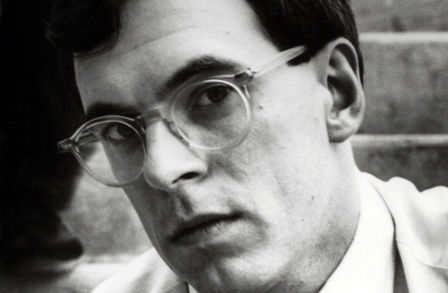It used to be more fun to be a poet
start the day with coffee and a sense
of bowling over people in a public space
with words that tell how I’m bowled over
this minute by the light
that pours across the city and its various shoes
and uniforms of occupation
troops whose ways of life I’d never share
but for the spaces
we separately passed through
I thought that I was different as I filled
those yellow pads with words
written in the styles of heroes
I wanted to be famous as, but younger,
the New York Ingenue School
of poetry and life but now I know
that saying that I’m different
from the rest because I make a poem
instead of shoes and uniforms
is how I drove my car toward death
too long—it wasn’t sloth
or lust or self-absorption
that put me where I ended up,
I was a poet, the same excuse
and boast my heroes used—the one
who was too drunk to see
the headlights coming, the one
who never left his bed, the connoisseur
of cure and re-addiction, the messed-up
child it used to be more fun before I knew
that what I thought I was and wanted
was death and my embroidery a shroud.
Say it loud, I’m not proud
of handiwork like that. I used to think
that poetry could serve the revolution
and that the revolution would transform
the world because the only way
that I could see things ever
changing was from outside
so I hitched my fortune to a threadbare star.
It was more fun to write against the war
when we thought the gifts our heroes
the downtrodden of the world
bore were truth and justice
instead of one more scam in Vietnam
my poems and self-righteous voice
helped give birth to boat people in Cambodia
to unspeakable crimes and now
my “US Out of Nicaragua” rap gives succor
to another ominous bunch of agrarian
reformers, this one with a top cop
whose first name is “Lenin,” a touch
straight out of a darkly funny novel
by Naipaul or Evelyn Waugh
It used to be more fun when other places
seemed better and more noble than America
even the obsessive money-grubbing swamp
of sanctimony that’s America these days
it used to be more fun when poetry
didn’t cost so much and when I didn’t need
the government to give me money to write poems
I liked what poetry could do
to street life, even and especially
when it came from the streets I liked
the poise and energy and grace
of black poets and gay poets and Dadaists
and unschooled natural artists
who fell into the workshops through the open doors
it was more fun before the mass
of canny grant recipients of many hues
took over it was more fun in my director’s chair
writing poems in an attic
than as a director, hurting friends
regretfully in the service of collective goals
it was more fun before I knew
my poetry could never be a spaceship
to speed me far away, or that I’d always be
outside it, like a parent,
seeing its resemblance to
my old intentions but unable
to make it work
and trusting it less
for the truths it told
than for the lies it didn’t
